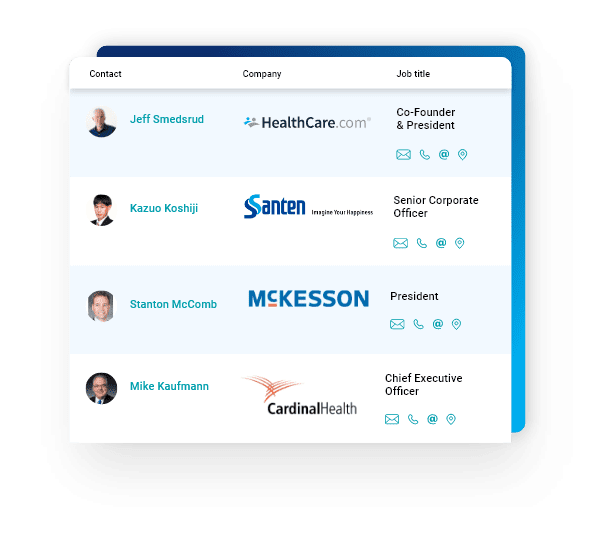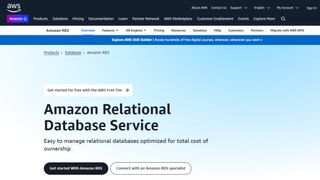Secret Attributes to Search For When Selecting a Data Source Carrier
Choosing a data source service provider is a critical decision that can dramatically affect your company's information and procedures management method. Among the vital attributes to consider are scalability options, which make sure that your system can adapt to growing needs. Security measures, efficiency metrics, and customer assistance likewise play critical roles in this examination process. As you evaluate these variables, it becomes evident that the option is not simply concerning capability however also concerning aligning with your long-term vision. What various other factors to consider might affect this important decision?
Scalability Options
When choosing a database company, recognizing scalability options is important to guaranteeing that the picked remedy can suit future growth. Scalability describes the ability of a database system to expand its ability and performance in response to enhanced need. There are 2 primary kinds of scalability: straight and vertical.
Upright scalability, or "scaling up," includes boosting a single server's resources, such as CPU, RAM, or storage space. This technique can be cost-efficient and simple for smaller applications yet might reach a restriction where additionally upgrades are too pricey or unwise.
Straight scalability, or "scaling out," includes adding a lot more servers to distribute the tons. This method enables greater flexibility and can accommodate substantial increases in information quantity and customer traffic (database provider). It is specifically helpful for cloud-based data source services that can dynamically allot resources based upon demand

Safety And Security Actions

When examining safety actions, consider the application of file encryption procedures (database provider). Data-at-rest and data-in-transit security are important to ensure that delicate details continues to be safeguarded, also in case of a safety and security violation. Additionally, search for service providers that offer solid authentication mechanisms, such as multi-factor verification (MFA), to even more boost gain access to control
Regular safety audits and compliance with sector standards, such as GDPR or HIPAA, are a measure of a service provider's dedication to information security. Furthermore, ask concerning their event response strategy; a robust plan can decrease the influence of any kind of potential protection incident.
Performance Metrics
Assessing performance metrics is important for organizations to ensure that their picked database provider satisfies operational needs. Key performance metrics consist of feedback time, scalability, and throughput, which collectively identify the effectiveness of data source operations under varying tons.
Reaction time is important, as it reflects exactly how swiftly the data source can process inquiries and return results. Organizations should search for metrics that indicate ordinary feedback times throughout peak and off-peak hours. Throughput, typically determined in transactions per 2nd (TPS), provides understanding into the database's capability to manage high quantities of requests without performance degradation.
Scalability evaluates the database's capacity to expand with the company's demands. A durable data source carrier should show upright and horizontal scaling capacities, permitting smooth modifications as needs fluctuate. Furthermore, recognizing latency, specifically in dispersed systems, can aid organizations review the responsiveness of the database across different geographical places.
Client Support
Trusted customer support is a cornerstone of reliable data source management, supplying companies with the aid required to optimize and solve concerns performance. When selecting a database provider, examining the level of consumer support they offer is crucial. A robust assistance system must consist of numerous networks of communication, such as phone, e-mail, and live chat, guaranteeing that customers can access help whenever they require it.
Additionally, responsive you can check here assistance groups that are available 24/7 greatly enhance the reliability of the data source solution. Trigger reaction times and effective resolution of problems can dramatically minimize downtime and boost general productivity. It is additionally beneficial to consider the accessibility of dedicated assistance personnel, that can supply tailored help based upon an organization's certain demands.
Prices Framework
When thinking about a data source company, the rates structure is an essential aspect that can significantly impact a company's budget and general strategy. A transparent and flexible pricing model is essential for lining up the data source costs with business requirements - database provider. Organizations must assess whether the pricing is based upon usage, per user, or a level rate, as each version can yield various economic effects in time
It is very important to analyze any type of important source extra costs linked with the company's services, such as data storage space charges, purchase costs, and assistance charges. Some companies may use tiered rates, permitting scalability as the company expands, while others may impose strict limitations that might come to be expensive as data needs increase.
Furthermore, organizations ought to take into consideration the lasting value of the data source solution. While lower initial rates can be appealing, they might not make up future upgrades, upkeep fees, or integration costs. Conducting a comprehensive cost-benefit analysis will aid recognize one of the most appropriate pricing framework that stabilizes scalability, assistance, and performance, inevitably guaranteeing that the selected database supplier lines up with the organization's operational and financial goals.
Verdict
In conclusion, selecting a data source company requires careful factor to consider of different important features. Scalability alternatives make certain adaptability to future development, while robust security procedures safeguard delicate info. Assessing efficiency metrics allows the recognition of effective data sources, and available customer support boosts the general customer experience. A transparent rates structure even more adds to notified decision-making. By extensively evaluating these aspects, organizations can make strategic options that align with their functional demands and long-term goals.
Selecting a database carrier is a crucial decision that can considerably influence your company's operations and data administration technique.When picking a database company, understanding scalability choices is critical to guaranteeing that the picked service can accommodate future development. When selecting a database company, evaluating the degree of consumer assistance they supply is important.When thinking about a database supplier, the prices framework is a web crucial aspect that can considerably influence an organization's spending plan and total strategy. Performing an extensive cost-benefit analysis will help identify the most appropriate prices framework that stabilizes efficiency, assistance, and scalability, inevitably making certain that the selected data source supplier aligns with the organization's operational and economic purposes.
Comments on “Top Database Providers for High-Performance Applications”